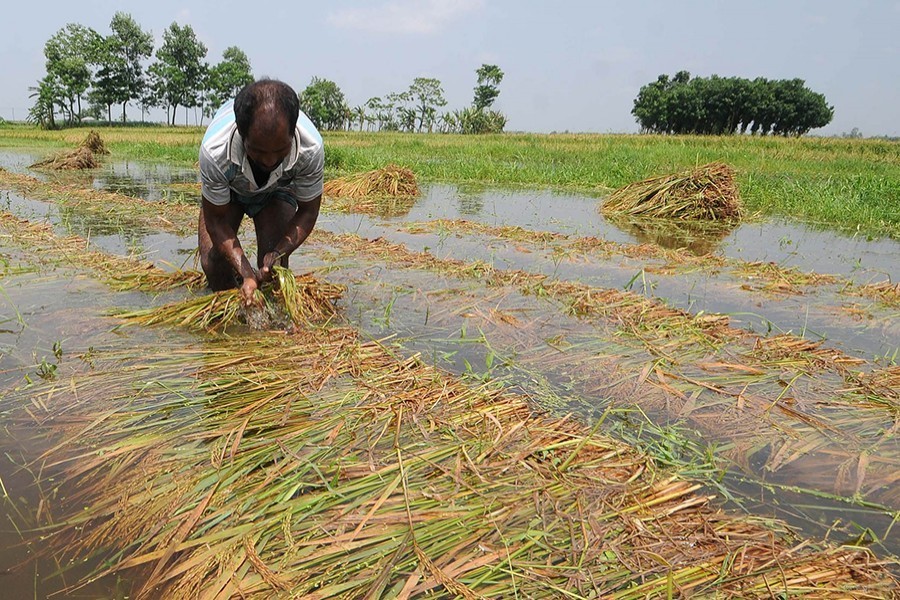One-third of agricultural GDP could be lost in Bangladesh due to climate variability and extreme events by 2050, the World Bank has said in a report.
Average tropical cyclones cost Bangladesh about $1 billion annually, and over 13 million people could become internal climate migrants in Bangladesh by 2050, it said.
Without action, climate change impacts could shrink cropland by 18 per cent in southern Bangladesh, according to the report titled "Bangladesh Country Climate and Development Report (CCDR)", a new diagnostic report that integrates climate change and development considerations, launched by the World Bank Group in Dhaka on Monday.
The WB report noted that 13.3 million people may become internal migrants in the next 30 years due to climate impacts on agriculture, water scarcity, and rising sea levels, with higher impacts on women.
In case of severe flooding, GDP could fall by as much as 9 per cent. The costs of environmental degradation and natural disasters are predicted to rise over time, compounded by higher heat, humidity, and health impacts, the report added.
Bangladesh will need at least $12.5 billion, approximately 3 per cent of GDP in the medium term for climate action, according to the WB projection.
The financing gap can be partially covered through additional funds from budget prioritization, carbon taxation, external financing, and private investment. It will be critical to address immediate and urgent challenges for climate change and development, the report added.
"Bangladesh has led the way in adaptation and disaster risk management. Over the past 50 years, it has reduced cyclone-related deaths 100-fold. Other countries can learn from this," Martin Raiser, World Bank Vice President for South Asia, said.
But with ever-increasing climate risks, further adaptation efforts are vital, and a low-carbon development path is critical to a resilient future for Bangladesh, Raiser added.
Bangladesh has demonstrated global best practices in disaster risk management and is a voice for climate-vulnerable countries.
Bangladesh was among the first to develop a Climate Change Strategy and Action Plan in 2009, which has become a blueprint for other climate-vulnerable nations.
The government has put in place a series of proactive policies and investments that strengthen resilience against climate-related disasters, leveraging community-led action.
This has led to the development of coastal embankment systems that protect over 6,000 km of vulnerable coastline and an early warning system for cyclones with more than 76,000 volunteers. But more needs to be done.


